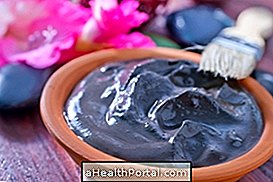Lansoprazole is an antacid remedy, similar to Omeprazole, which inhibits the functioning of the proton pump in the stomach, decreasing the production of acid that irritates the mucosa of the stomach. This way, this medicine is widely used to protect the lining of the stomach in cases of gastric ulcer or esophagitis, for example.
This medicine can be bought in pharmacies without prescription in the form of capsules with 15 or 30 mg, being manufactured as generic or by various brands such as Prazol, Ulcestop or Lanz, for example.

Price
The price of lansoprazole may vary between 20 and 80 reais, depending on the brand of medication, dosage and amount of capsules in the package.
What is it for
15 mg lansoprazole is indicated to maintain the healing of reflux esophagitis and stomach and duodenal ulcers, avoiding the resurgence of heartburn and burning. Lansoprazole 30 mg is used to facilitate healing in the same problems or for the treatment of Zollinger-Ellison syndrome or Barrett's ulcer.
How to use
This medicine should be indicated by a doctor, however, the treatment for each problem is done as follows:
- Reflux esophagitis, including Barrett's ulcer: 30 mg per day for 4 to 8 weeks;
- Duodenal ulcer : 30 mg per day, for 2 to 4 weeks;
- Gastric ulcer : 30 mg per day for 4 to 8 weeks;
- Zollinger-Ellison Syndrome : 60 mg per day for 3 to 6 days.
- Maintenance of healing after treatment : 15 mg per day;
Lansoprazole capsules should be taken fasting about 15 to 30 minutes before breakfast.
Possible side effects
The most common side effects of lansoprazole include diarrhea, constipation, dizziness, nausea, headache, stomach pain, excessive gas, burning in the stomach, tiredness or vomiting.
Who should not take
This medication should not be used by women who are breast-feeding, people who are allergic to lansoprazole or are being treated with diazepam, phenytoin or warfarin. In addition, in the charts, it should only be used with supervision of the doctor.

















